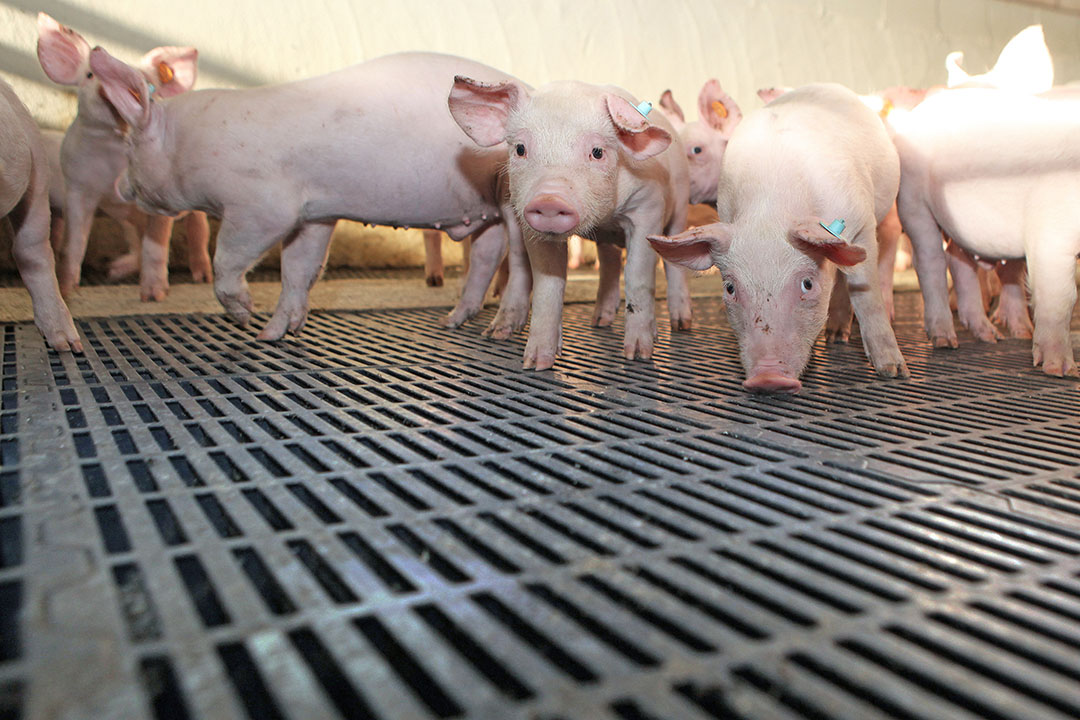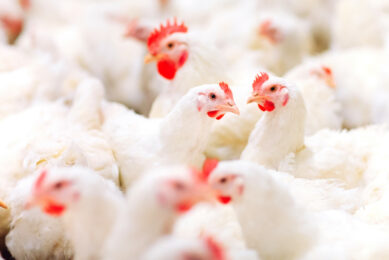Nutrition: Key in reducing antibiotics

The goal to reduce antibiotic use is ultimately a goal to produce healthy production systems. Therefore, we need to seek out solutions for health rather than treatments for our diseased production systems.
Decades of research for alternatives to antibiotics have provided few good alternatives. Many antibiotic reduction programmes are focused on biosecurity, vaccinations and management systems, but fail to embrace the importance of feed and nutrition in creating healthy animals. The key to a healthy animal is a healthy gut, and therefore nutrition is key to a healthy, non-antibiotic production system.
Where does good nutrition start?
Nutritional solutions for healthy, holistic production animals need to be better promoted and integrated into all antibiotic reduction programmes. Good nutrition does not start with purchasing various supplements to add to the feed, but with the optimal nutrients for the age and production stage of the animal. Alltech has developed a practical antimicrobial reduction programme for producers that are interested in reducing their antimicrobial use. The farm is audited, the challenges on the farm are identified and goals are determined. Alltech then provides an extensive report with various solutions to help the farm achieve their goals and provides regular re-evaluations of the farm’s antibiotic reduction programme.
Stressors during overcrowding
Animal welfare also has a big impact on production efficiency and health. Herd-level immunity, individual gut health and systemic immunity, nutritional status, stress-levels and environmental conditions all interact. But better nutrition is not the only solution for health challenges caused by housing, environmental stress or management stress. Environmental conditions also have a huge influence on health and welfare. It is important to know the ideal environmental temperature for the age and weight of the animals. A warm, moist environment is perfect for pathogenic bacteria to thrive and propagate. Good air quality and ventilation are also essential to keeping our animals healthy and vigorous.
Overstocking is very common, and this impacts the environmental temperature. It also affects hygiene, as it can lead to the reduction of cleaning and disinfection between batches of animals. Overcrowding imposes social stress on the animals, as there may be insufficient eating and resting space. Although most of us know about all of these stressors, it is very common to see farms where the management and stress factors leading to disease are not corrected. Instead, animals are fed antibiotics to reduce disease and poor performance. That is why Alltech’s antimicrobial reduction programme also evaluates environmental conditions.
Early animal health
A big challenge in our production systems is raising healthy young animals with high animal density. It is important to respect the physiological development of young animals and not just try to make them adapt to our systems.
Adapting to new feed
Young animals have been designed to obtain a good level of immune protection through colostrum and milk. Replacement of the natural milk with a vegetable protein alternative is often linked to digestive stress, which can easily lead to enteric disease. The ability of the animal’s gut to efficiently adapt and digest a new feed is critical in systems with feed changes. In mammals, the biggest challenge is often seen when weaning piglets and calves at an age where the gut is not sufficiently adapted to a new feed.
Stresses of weaning
Furthermore, weaning is a drastic feed change that stresses the animals and causes immune suppression. This may lead to increased disease, which has previously been treated with in-feed or in-water antibiotics. Weaning times and weaning systems in piglets and dairy calves need to allow the animals to transition easily from milk to grain-based diets. The early weaning practices of piglets in many industrial production systems are challenging to maintain. The time of the weaning comes when the piglet’s colostrum-derived immunity is at a low point, while the animal’s own immunity is not strong enough to protect the piglet. Many integrated pig producers are increasing the weaning age of the piglets in systems that reduce antibiotic use, and they are reaping the benefits of stronger pigs throughout the remaining rearing period. In calves, it is essential to include a very palatable, high-quality starter in the first week of life.
The mothers diet
It is also important to focus on the mother’s diets. In pig production, with increasing litter sizes, the sow’s colostrum production may not be enough to provide a good early neonatal immunity to the whole litter. This leaves them vulnerable to diseases that could be previously treated with antibiotics. In dairy production, failure to provide good dry cow diets may reduce the quality of colostrum, leading to a sub-optimal start in life for the calves.
Partnering nutrition with vaccination
Vaccines have proven to be crucial and very cost-effective in preventing the onset and spread of infectious diseases and thereby have great potential to reduce antibiotic use and resistance. However, immune-enhancing measures are not limited to vaccinations. They also include numerous other factors, such as:
- genetic selection
- pathogen-free animal
- nutrition
- maternal immunity transmitted to offspring
- mycotoxin prevention
- stress reduction
- stocking density
- environmental factors
Furthermore, the effect of the vaccines is strongly dependent on the animal’s ability to mount a good immune response, and thereby nutritional status and immunity are of greatest importance. Vaccination programmes and decisions to vaccinate should, therefore, be taken in holistic animal health programmes, where the animal’s nutritional status and immunity is good enough to make the vaccine programs cost-effective. It is important to include organic mineral supplementation in vaccination programmes in order to improve the animal’s ability to respond to the vaccines administered. Mycotoxins in our production animals’ feed have a huge, detrimental impact on health and productivity. Alltech’s antimicrobial reduction programme critically evaluates and addresses these hazards. Intestinal cells are exposed to mycotoxins in higher concentrations than other tissues. Deoxynivalenol (DON) is one of the most prevalent toxic cereal contaminants. Even at low levels in feed, it can cause damage to the enteric cells, leading to impaired nutrient absorption. DON further disrupts the gut immunity, facilitating the survival and persistence of pathogens and resulting in inflammatory mechanisms that further destroy the intestinal barrier. Many of Alltech’s on-farm programmes have found that mycotoxin challenges are undermining the animals’ natural immunity and lead to increased clinical diseases that are treated with antibiotics. Alltech’s broad-spectrum mycotoxin absorbent — when included in the feed — helps to reduce prophylactic antibiotic use. Healthy-age and production-adapted nutrition is the basic building block of a healthy productive animal. Therefore, feed solutions that optimise enteric health, digestion and immunity will be effective in many farms aiming to reduce antibiotic use.
Author:
Anna Catharina Berge, Berge Veterinary Consulting BVBA, Belgium











